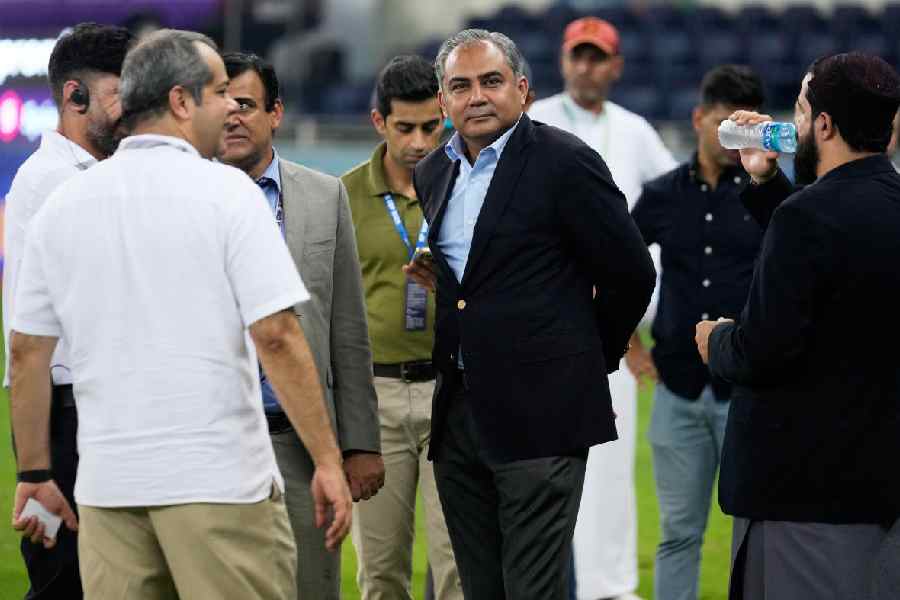 |
| Preet Bharara |
New Delhi, Jan. 7: Negotiations between India and the US to resolve the spat over the arrest of Devyani Khobragade have hit a wall over a new proposal by American prosecutors to allow the diplomat to skip jail time — if she accepts guilt.
US attorney for Manhattan Preet Bharara has suggested a plea bargain that will need the diplomat to accept guilt on charges that she committed visa fraud and lied to American consular officers to bring her nanny Sangeeta Richard to New York.
In exchange, she will receive either a reduced jail term or a complete waiver from time in prison, under the proposal that senior Indian officials here and in the US confirmed.
But Bharara’s proposal, made to Khobragade’s lawyer Daniel Arshack on January 5, cannot be accepted by India because it would set a precedent that could be used by US authorities against other diplomats, the officials said.
India has been demanding that US prosecutors drop all charges against Khobragade. “Accepting a plea bargain is a strict no-no,” an official said. “It’s not an option.”
Plea bargain, which requires the final approval from the judge, is the manner in which more than 90 per cent of all cases in the US are settled.
Such negotiations can start even before indictment. In the Khobragade case, possible indictment was scheduled for January 13 but her lawyer has sought more time. If any plea deal is struck, the charges against her can be changed from accusations that she committed a felony — a serious crime — to a lesser misdemeanour.
Any such change will mean she will be free from any fear of future arrests even if she no longer has diplomatic immunity that she now enjoys after she was moved to India’s permanent mission to the UN in New York following her December 12 arrest.
But in a case that has become a touchstone of national pride, pure legal tactics can no longer guide India’s response, officials conceded.
Officially, Khobragade has not yet responded to Bharara’s suggestion. But the proposal itself has left Indian officials frustrated at what they see as “bad faith” on the part of the US state department.
During key discussions over the past two weeks, senior state department officials advised their Indian counterparts that a resolution could be reached if Khobragade and her lawyers discussed the case and possible options with Bharara’s office.
Despite apprehensions, officials said, Khobragade’s lawyer has held talks with Bharara’s team over the past week.
As the dialogue between Indian and US officials, on the one hand, and between Bharara’s office and Khobragade’s lawyer, on the other, failed to yield any outcome acceptable to India, Arshack has sought more time before prosecutors sought an indictment.
Under US law, prosecutors have a month to register an indictment for felonies after registering their first complaint.
In this case, the original complaint was registered on December 12. So, the indictment — the equivalent of the chargesheet in India — must be brought by January 13 unless the court grants the one-month extension that Arshack has requested.
“Significant communications have been had between the prosecution and the defence and amongst other government officials and it is our strong view that the pressure of the impending deadline is counterproductive to continued communications,” Arshack wrote in a letter to US magistrate judge Sarah Netburn, according to Reuters.
But Bharara has opposed any delay in indicting Khobragade, and his January 5 suggestion of a plea bargain has hit attempts at finding a resolution that would make the charges against the Indian diplomat ineffective, officials said.
“The government is not seeking an extension of the deadline for indictment and, therefore, there is no motion for the court to decide,” Bharara wrote to judge Netburn. “At any rate, as the court knows, the timing under which the government seeks an indictment is in the discretion of the government and the defendant cannot alter that.”
The US state department had indicated in back-channel conversations with Indian interlocutors two weeks ago that it would grant a formal recognition of Khobragade’s accreditation to the UN — the global body has already accepted the diplomat’s application.
But it has not yet submitted its recognition of Khobragade’s accreditation — recognition that would formally accept her immunity as a diplomat to the UN.
“Logically, you would imagine the US would recognise her accreditation when the UN has,” an Indian official said. “But the way things have gone, especially with Bharara’s latest proposal, you have to wonder whether ties with India are really that important to the US.”










